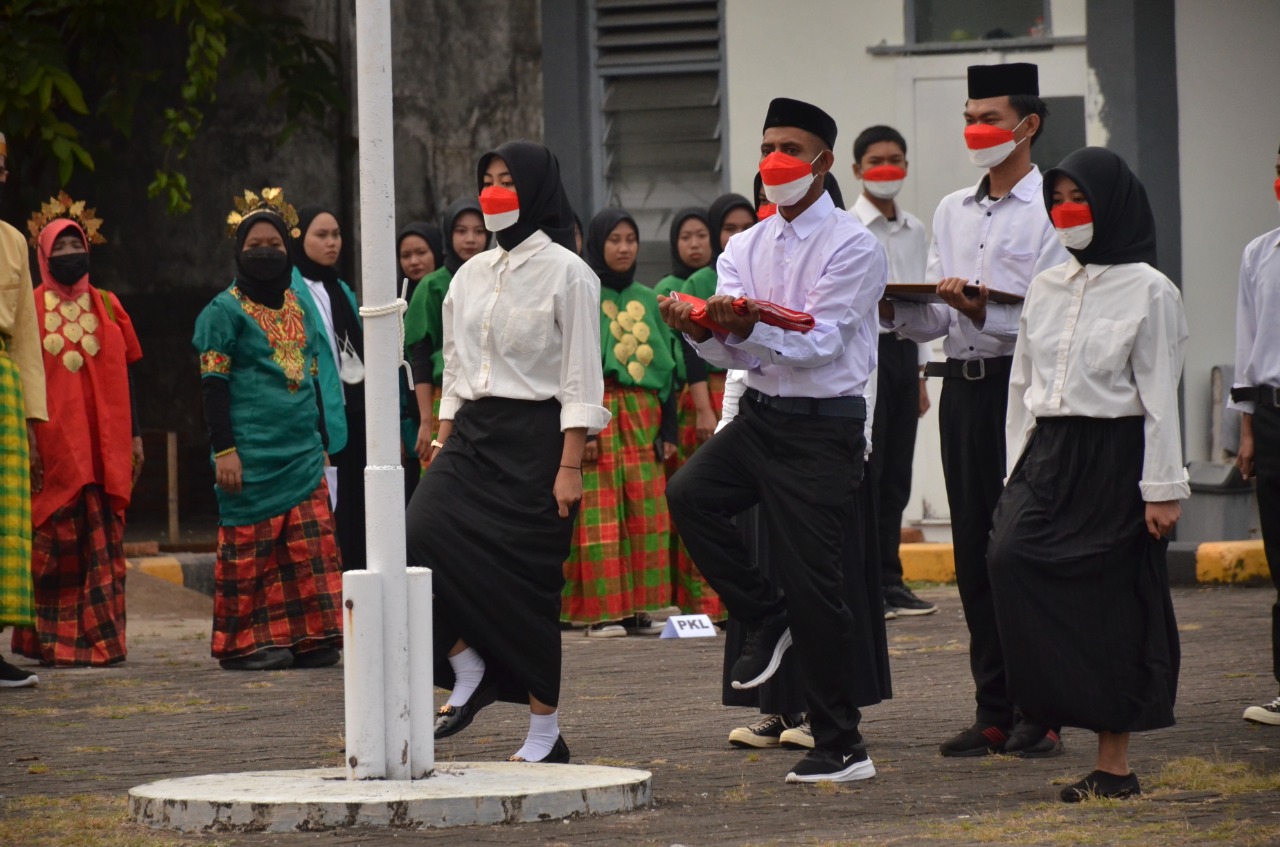The Story of Papuan Youths Cope with Disabilities, MoSA Presents Offering Opportunity

MAKASSAR (August 27, 2022) – Rainbow comes after the rain. This quote seems
felicitous to describe Edison Elieser Paparo's life, a man from Yapen Island
Papua. Being at the lowest point of his life had made him fall into depression
and almost lost hope for a better future.
At the time, Edi was in his Senior High School, a fatal
accident occurred, and broke his leg. This physical injury had left him lame.
Realizing that he would never be able to walk properly, Edi felt that his world
had fallen out, his confidence drained away, and the hope for a bright future
faded.
Then, the offering for social rehabilitation from The
Wirajaya Center in Makassar came. Edi did not think twice to accept the offer.
During the rehab, Edi received counseling services and learned various
practical skills. Those two things made his confidence gradually return.
Among many skills training provided, Edi chose automotive to be his expertise.
The 25 years old man wanted to continue his parents’ motorcycle workshop in
Yapen Island when he graduates from the center later.
Considering his physical condition, Edi even did not expect
that he got an opportunity to be one of the Flag Hoisting Troops at the Ceremony of the 77th anniversary of Indonesian Independence day held by The Wirajaya Center. In
his mind, a flag bearer is someone with a perfect posture. “I do not expect it,
usually flag bearer is someone with a perfect body, but I also can do it,” he
said.
Kisah Pemuda Papua Bangkit Melawan Keterbatasan, Kemensos
Hadir Menawarkan Kesempatan, Edi’s hometown mate, Leonardo Ampari Upuya, shared
the same spirit. The man that also came from Yapen Island showed his gratitude
for his rehabilitation program in Wirajaya Center, particularly a chance for
him to freely express himself. Besides the hip dislocation he suffered, Leo was delighted that he was still allowed to explore his interest and talent, especially in singing.
Leo has a typical vocal character, he can hit high pitch
without straining so his performance is always awaited. No wonder, Leo won
first place in a singing competition held by Wirajaya Center on last 17 august.
At the competition, Leo sang Indonesia Pusaka, a song composed by Ismail
Marzuki. His strong and melodious voice hypnotized and evoked a sense of nationalism in those
who heard it.
The stories of Leo and Edi are two of many stories about how the social rehabilitation process conducted by MoSA’ centers have significant
impact on one’s life. For people who need social services, the presence of
centers has become a place where new hope blooms.
The
acting head of Wirajaya Center, Bambang Tri Hartono mentioned that the success
of social rehabilitation significantly depends on the characteristic of the client
or beneficiary itself. “For clients with disability, psychosocial therapy that
drives motivation combined with vocational training will have a significant
impact," said Bambang.
Different treatment is applied to children against the law. The juvenile is provided with more counseling and skill to
analyze information. Research and rehabilitation note from psychologists and
social workers in Wijaya Center shows that the pupils tend to have emotional
disorder and life skill problem so this should be quelled first.
"To illustrate, if there is a behavior that offends
them, they will compulsively become mad. But actually, the case is, there is
nothing to be mad of. That's why we overcome that problem first then give them
vocational training," said Bambang.
Bambang said the most important thing was the long-term
target which was after termination.
"It means after they release, what will they do,
whom they live with. So that, we engage the family in the rehabilitation process
from the beginning," Bambang said in an interview via WhatsApp call.
Communication between social workers, psychologists, and families should bind up.
Family participation has been started since the client is delivered to the center
because the family will play important role in continuing the success of
rehabilitation conducted in the center.
At the end of the program, when clients are
terminated, the center will provide them will a tool kit or capital as part of
empowerment. The center also facilitates clients who want to be employed with market labor. "One more, clients with disability, for
instance, want to open a business. we will get them on vocational training
so that they have a specific skill and when they release we will give them a tool
kit. And for those who want to work, Last time we cooperated with Alfamart and
PT. POS in workforce distribution. Then there was a juvenile who wanted to be
a tailor, we register him on a course to get a certificate," Bambang said.
Bambang highlighted that the social rehabilitation target
is not only behavior change when the client is still in the center, but also to
prepare them when they get back to society. In the process, every time a client
will be terminated, the center will host a case conference and invite related
parties such as the community, stakeholders where the client comes from, and other
parties. The conference aims to discuss further intervention, particularly the
readiness of the family or environment to accept the client. This is solely to ensure the termination goes well and the client's condition keeps conducive.
Currently, Wirajaya Center in Makassar covers 10 regencies
and towns in South Sulawesi and 20 regencies and towns in Papua.

 English
English
 Bahasa
Bahasa
